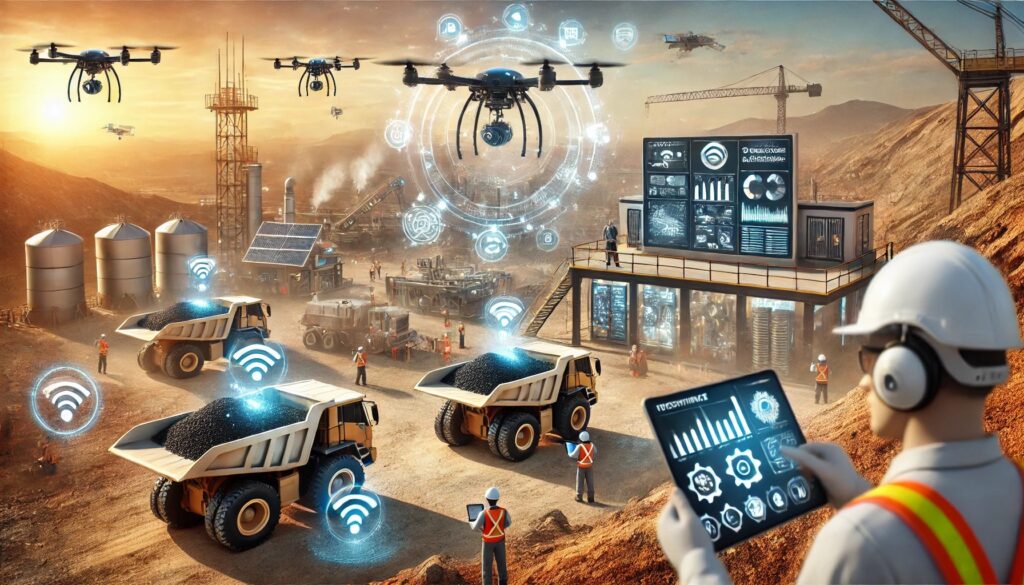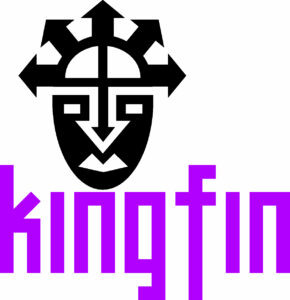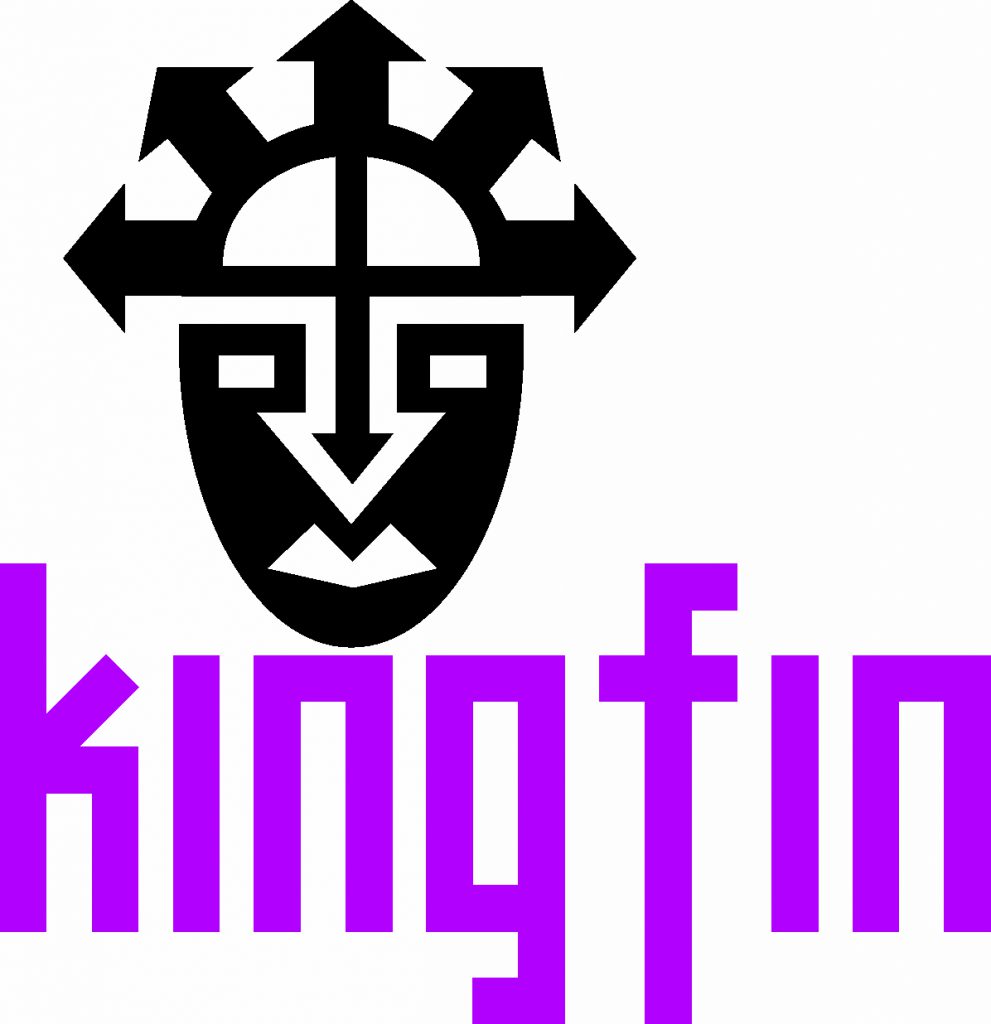How IoT is Unearthing the Future of Mining in Africa

The mining industry, traditionally defined by heavy machinery, intense labor, and high operational risks, is undergoing a technological revolution. Internet of Things (IoT) is transforming mining operations worldwide, introducing automation, real-time monitoring, and data-driven decision-making to improve efficiency, safety, and sustainability. Africa, rich in mineral resources and home to a rapidly evolving technological landscape, is experiencing a major shift in how mining is conducted.
At the heart of this transformation is Kingfin Enterprises Limited, a leading provider of IoT (Internet of Things) solutions across Africa. With deep expertise in LPWAN, Cellular, and Satellite IoT solutions, Kingfin is spearheading innovative technologies that enhance mining operations, reduce costs, and improve safety. This article explores how IOT is shaping the future of mining in Africa and how Kingfin is driving the adoption of smart mining solutions.
The Digital Transformation of Mining
Mining operations are inherently complex, involving the extraction of valuable minerals from beneath the earth’s surface. The traditional approach to mining comes with numerous challenges, including high costs, unpredictable safety hazards, and inefficient resource management. However, advancements in IOT are addressing these challenges by introducing automation, remote monitoring, and real-time data analysis.
One of the key components of IOT in mining is automation. Autonomous vehicles and robotic drilling systems are now replacing manual operations, reducing human exposure to hazardous conditions while improving precision and efficiency. Real-time monitoring systems powered by IoT enable mining companies to track equipment performance, monitor air quality, and assess structural integrity. By collecting and analyzing data from various sensors, mining companies can optimize operations and make informed decisions.
Another crucial aspect of digital mining is the use of artificial intelligence (AI) and big data analytics. AI-driven algorithms can process vast amounts of geological data to predict mineral deposits more accurately, reducing the time and cost associated with exploration. Companies like KoBold Metals, a Silicon Valley startup, are leveraging AI to enhance mining efficiency. In Zambia, KoBold discovered a significant copper deposit by analyzing data at deeper levels than traditional exploration methods. Such innovations are setting a new standard for mining practices in Africa.
Kingfin Enterprises Limited: Pioneering IoT Solutions in African Mining
Kingfin Enterprises Limited is at the forefront of Africa’s digital mining revolution. Established in 1997 and later relocating to Kenya in 2010, Kingfin has emerged as a premier distributor of IoT solutions, providing comprehensive support from proof of concept to full-scale commercial deployment.
Kingfin offers tailored IoT solutions that address the unique challenges of African mining operations. By leveraging LPWAN, Cellular, and Satellite IoT technologies, Kingfin enables mining companies to implement smart solutions that enhance operational efficiency, safety, and sustainability. Their offerings include:
- Real-time Asset Monitoring: IoT sensors track mining equipment performance, reducing downtime and maintenance costs.
- Predictive Maintenance: AI-driven analytics predict potential failures, allowing for proactive maintenance strategies.
- Worker Safety Enhancements: Wearable IoT devices monitor miners’ health, location, and exposure to hazardous conditions.
- Environmental Compliance: Smart sensors detect air and water pollution levels, ensuring adherence to environmental regulations.
By integrating these IoT solutions, mining companies can significantly improve operational outcomes while reducing risks and environmental impact.
Enhancing Mining Operations with IoT
IoT plays a transformative role in mining by connecting physical assets to digital platforms, allowing companies to make data-driven decisions. Below are some of the key benefits IoT brings to mining operations:
- Predictive Maintenance for Reduced Downtime
Mining equipment failure can lead to costly delays and hazardous situations. IoT-enabled predictive maintenance solutions help mitigate this risk by continuously monitoring equipment performance. Sensors track vibration, temperature, and other critical parameters, identifying potential issues before they lead to failures. This reduces unplanned downtime and extends the lifespan of mining machinery, ultimately improving productivity.
- Improved Worker Safety and Health Monitoring
Mining remains one of the most dangerous industries due to risks such as cave-ins, gas leaks, and equipment malfunctions. IoT-based safety solutions improve worker protection by using wearable devices that monitor heart rate, temperature, and exposure to harmful gases. In the event of an emergency, real-time alerts enable swift response, potentially saving lives.
Additionally, geofencing technology can restrict worker access to hazardous areas, reducing accidents caused by human error. Kingfin’s IoT solutions include advanced safety measures tailored to African mining environments, ensuring that mining operations comply with international safety standards.
- Efficient Resource Management
Resource extraction requires careful planning to maximize yield while minimizing waste. IoT sensors collect data on soil composition, water levels, and mineral concentration, allowing mining companies to optimize extraction strategies. This reduces operational costs and enhances sustainability by preventing unnecessary depletion of natural resources.
- Environmental Sustainability and Compliance
Mining has significant environmental impacts, including deforestation, water pollution, and air contamination. IoT solutions help mitigate these effects by providing real-time data on environmental conditions. Smart sensors measure air quality, water pH levels, and soil contamination, enabling companies to take corrective actions before regulatory violations occur.
Governments and environmental organizations are increasingly imposing strict compliance requirements on mining companies. By leveraging Kingfin’s IoT solutions, companies can ensure they meet these regulations while maintaining operational efficiency.
Case Study: The Role of AI in Mineral Exploration
One of the most exciting applications of IOT in mining is AI-driven mineral exploration. Traditional exploration methods rely on drilling and surface sampling, which can be time-consuming and costly. AI-powered data analytics allow mining companies to analyze geological data and identify potential mineral deposits with greater accuracy.
KoBold Metals is a prime example of how AI is revolutionizing mining. The company combines geophysics, geochemistry, and machine learning to create predictive models that pinpoint valuable mineral deposits. In Zambia, KoBold identified a major copper deposit by analyzing data that traditional exploration methods had overlooked.
This approach not only reduces the cost of exploration but also minimizes environmental disruption by reducing the need for excessive drilling. The integration of AI and IoT is paving the way for a more efficient and sustainable mining industry in Africa.
The Future of Mining in Africa
The future of mining in Africa lies in the continued adoption of digital technologies. As more companies embrace IoT, AI, and automation, the industry will experience increased efficiency, reduced costs, and enhanced safety. The role of companies like Kingfin Enterprises Limited is critical in this transformation.
By providing tailored IoT solutions, Kingfin is helping mining companies navigate the challenges of modern mining while unlocking new opportunities for growth. The integration of smart mining technologies will not only improve productivity but also ensure that mining operations align with global sustainability goals.
Furthermore, governments and regulatory bodies must support this transition by fostering an enabling environment for technological innovation. Investments in digital infrastructure, policy incentives, and skill development programs will be essential to accelerate the adoption of IOT in mining.
Conclusion
The integration of IOT in mining is not just a passing trend—it is the future of the industry. The ability to monitor, analyze, and optimize operations in real-time is revolutionizing how mining companies operate, leading to safer, more efficient, and environmentally sustainable practices.
Kingfin Enterprises Limited is playing a pivotal role in this transformation, delivering cutting-edge IoT solutions that address the unique challenges of African mining. As technology continues to evolve, mining companies that embrace digital solutions will gain a competitive edge, ensuring long-term success in an ever-changing industry.
By investing in IOT, Africa’s mining sector can unlock new levels of efficiency and sustainability, securing its place in the global economy for years to come.

